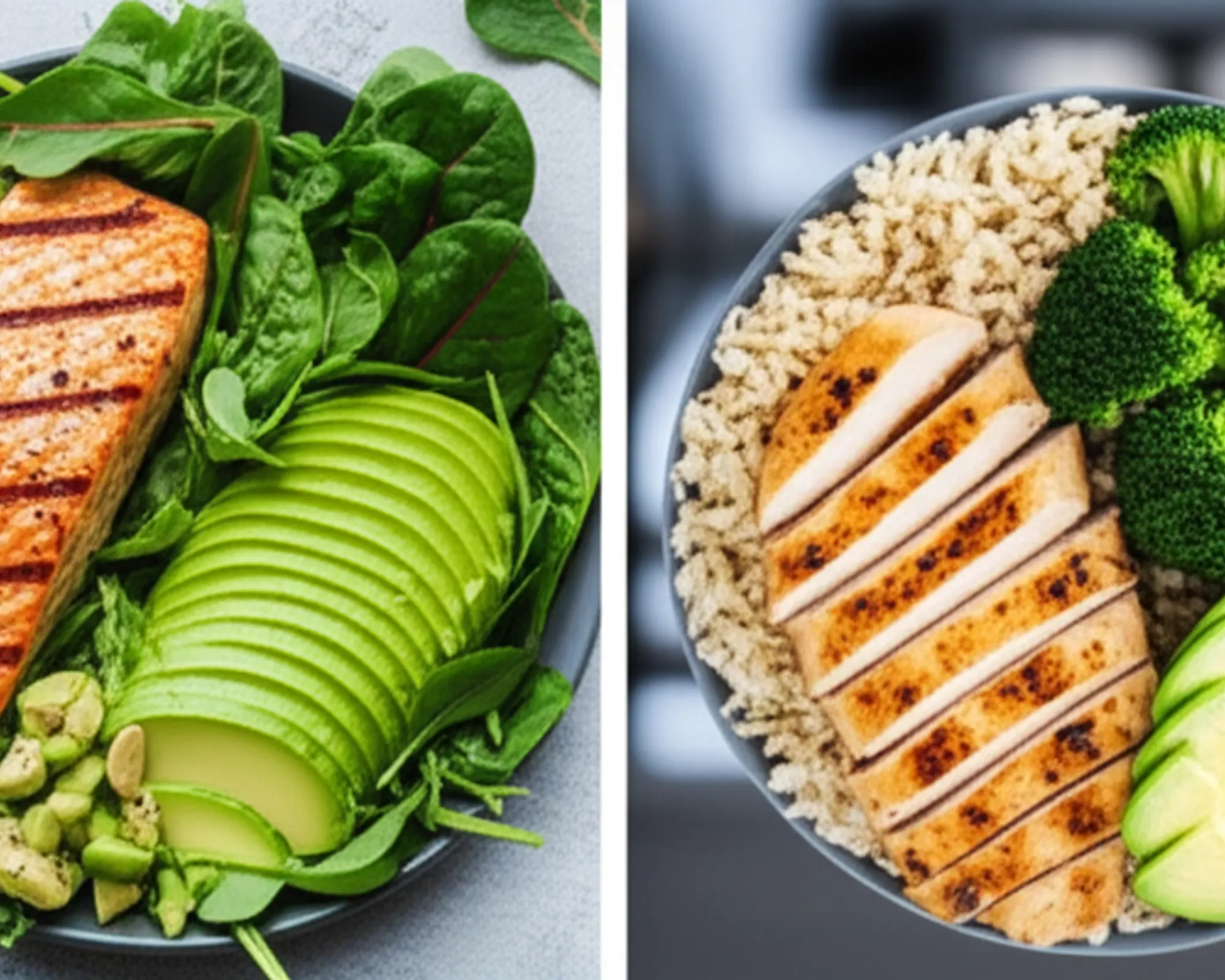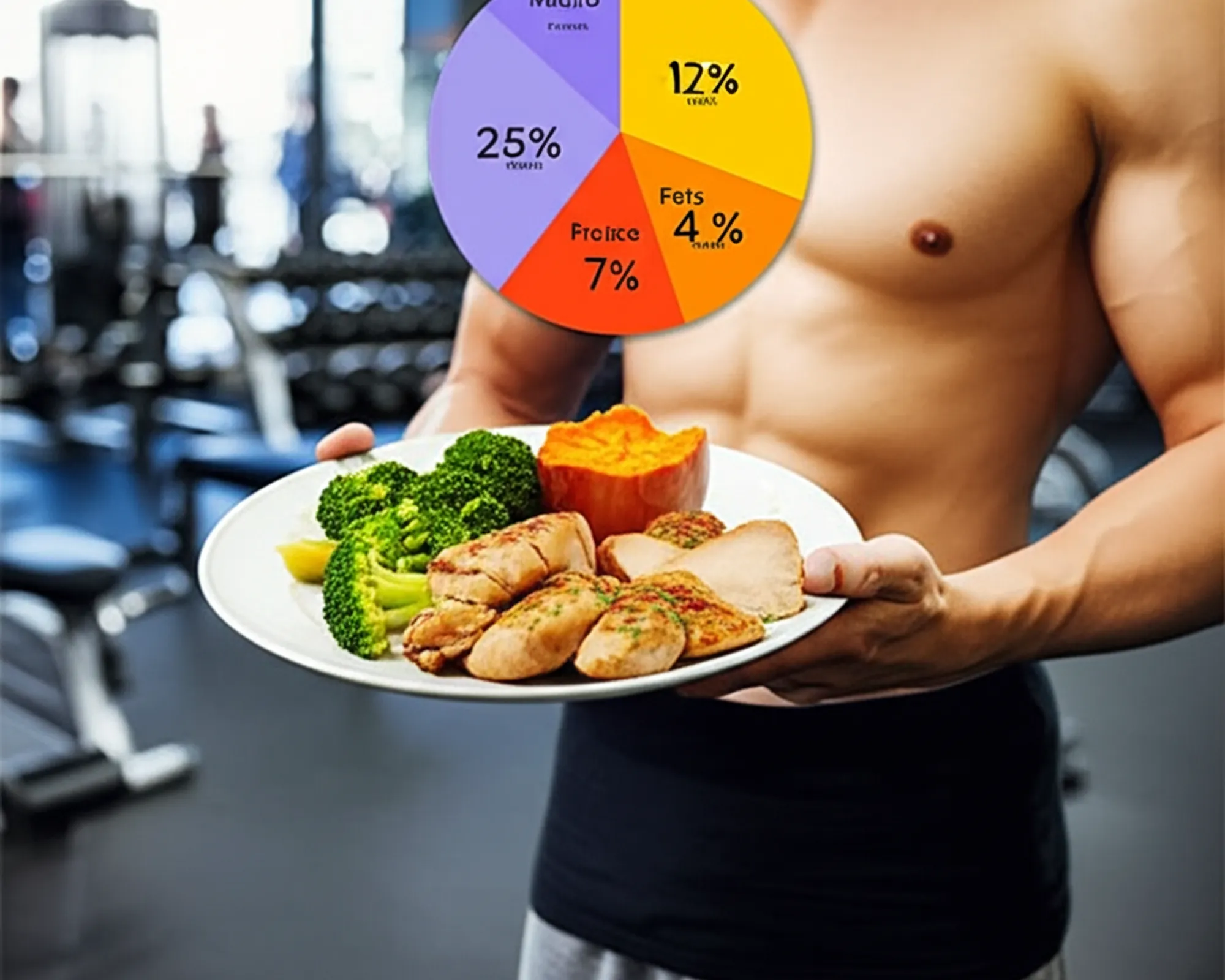Keto Diet for Gym: Pros and Cons

The ketogenic diet, commonly known as keto, has taken the health and fitness world by storm. Characterized by a very low carbohydrate, moderate protein, and high-fat intake, it forces the body into a metabolic state called ketosis. In this state, your body efficiently burns fat for fuel, producing ketones as an alternative energy source for the brain and muscles. While initially popularized for its weight loss benefits, many gym enthusiasts and athletes are now exploring keto's potential to enhance performance, body composition, and overall well-being. But is it truly a game-changer for your gym routine, or are there hidden drawbacks? Let's dive deep into the pros and cons of adopting a keto diet for your fitness journey.
At its core, the keto diet significantly restricts carbohydrate intake, typically to less than 50 grams per day, sometimes even lower. This drastic reduction depletes the body's glycogen stores – the primary source of fuel for high-intensity exercise. When glucose isn't readily available, the liver converts fat into fatty acids and ketone bodies. These ketones, particularly beta-hydroxybutyrate (BHB), become the body's new preferred fuel. For gym-goers, this shift means relying on fat for energy during workouts, a stark contrast to traditional diets that emphasize carbohydrate loading for fuel. The theory is that by becoming "fat-adapted," athletes can tap into nearly limitless fat reserves, potentially leading to sustained energy levels and improved endurance.
Pros of Keto for Gym:
- Sustained Energy Levels: One of the most frequently cited benefits is the stable energy supply. Unlike carb-heavy diets that can lead to energy spikes and crashes (often called "sugar crashes"), a fat-adapted body has a more consistent fuel source. This can translate to enduring longer workouts without feeling fatigued, especially beneficial for endurance activities. Your body is less reliant on external glucose intake, making energy more readily available from internal fat stores.
- Enhanced Fat Loss and Body Composition: Keto is renowned for its efficacy in fat loss. By promoting the use of fat for fuel and often leading to a natural reduction in appetite, it can be highly effective for shedding excess body fat. For gym-goers, this means achieving a leaner physique while potentially preserving muscle mass, especially if protein intake is adequate. The diet's impact on insulin sensitivity also plays a role in optimizing fat burning.
- Appetite Suppression: Many individuals on keto report a significant reduction in hunger and cravings. This is partly due to the satiating effect of fats and proteins, and partly due to the appetite-regulating effects of ketones themselves. For those who struggle with overeating or frequent snacking, this can be a major advantage in adhering to a caloric deficit necessary for fat loss.
- Improved Metabolic Health: Beyond the gym, the ketogenic diet has shown promise in improving various markers of metabolic health, including blood sugar control, insulin sensitivity, and triglyceride levels. For athletes, a healthier metabolism means more efficient energy utilization and better overall physiological function, which indirectly supports performance and recovery.
Cons of Keto for Gym:
- "Keto Flu" and Adaptation Period: The initial transition to ketosis can be rough. Many experience the "keto flu," a collection of symptoms including fatigue, headaches, nausea, irritability, and muscle cramps. This typically lasts for a few days to a couple of weeks as the body adjusts to burning fat instead of carbs. During this period, gym performance can severely decline, making intense workouts challenging or impossible. Electrolyte imbalance is a major contributor to these symptoms.
- Reduced High-Intensity Performance: While great for sustained, moderate-intensity exercise, keto can hinder performance in high-intensity, explosive activities like sprinting, heavy lifting, or HIIT. These activities primarily rely on anaerobic glycolysis, which uses glycogen (stored carbohydrates) as fuel. Without readily available glycogen, athletes may find their power output and strength significantly reduced, limiting their ability to push limits in the weight room or during short, intense bursts of effort.
- Nutrient Deficiencies and Restrictiveness: The strict carbohydrate restriction means cutting out many common foods like fruits, certain vegetables, and whole grains. If not carefully planned, this can lead to deficiencies in essential vitamins, minerals, and fiber. Maintaining a varied and nutrient-dense diet on keto requires deliberate effort and knowledge. The restrictive nature can also make it socially challenging and difficult to sustain long-term for some individuals.
- Potential for Muscle Loss: While keto can preserve muscle mass if protein intake is high and resistance training is consistent, there's a risk of muscle loss, especially during the initial adaptation phase or if calorie intake is too low. The body might break down protein for gluconeogenesis (creating glucose from non-carb sources) if fat adaptation isn't complete or energy demands are very high without sufficient fat intake.
- Digestive Issues: Some people experience digestive discomfort, such as constipation or diarrhea, especially early on, due to the drastic change in macronutrient ratios and fiber intake.
Who Should Consider Keto for Gym?
The keto diet might be particularly well-suited for endurance athletes (e.g., marathon runners, ultra-cyclists) who perform long, steady-state activities where fat is the primary fuel. Their bodies become highly efficient at utilizing fat stores, potentially leading to improved stamina and reduced reliance on external carbohydrate intake during events. Furthermore, individuals primarily focused on significant fat loss and body recomposition, who are willing to commit to the dietary restrictions, may find keto highly effective. It can also benefit those seeking better blood sugar control or stable energy levels throughout the day, even outside of workouts.
Who Should Be Cautious?
If your primary goal is maximal strength, power, or high-intensity performance (e.g., powerlifting, CrossFit, sprinters), the keto diet might not be your optimal choice due to its impact on anaerobic pathways. Athletes involved in sports requiring explosive movements may find their performance compromised. Beginners to fitness, those with pre-existing medical conditions (like kidney disease, pancreatitis, or eating disorders), and pregnant or breastfeeding women should also approach keto with extreme caution and always consult a healthcare professional or a registered dietitian before making significant dietary changes.
Tips for Implementing Keto in the Gym:
- Electrolyte Management: This is crucial. Supplement with sodium, potassium, and magnesium, especially during the adaptation phase, to mitigate keto flu symptoms and support muscle function.
- Adequate Protein: Ensure you're consuming enough protein (around 0.7-1.0 gram per pound of lean body mass) to preserve muscle mass and support recovery.
- Listen to Your Body: Pay close attention to how your body responds. Some individuals thrive on keto; others struggle. Adjust your intake and training as needed.
- Patience is Key: Full fat adaptation can take several weeks, or even months. Don't expect immediate peak performance.
- Consider Targeted Keto or Cyclical Keto: If high-intensity performance is crucial, some athletes use variations like Targeted Ketogenic Diet (TKD), where a small amount of carbs is consumed before or after workouts, or Cyclical Ketogenic Diet (CKD), which involves carb refeeds periodically.
- Nutrient Density: Focus on consuming nutrient-dense whole foods like leafy greens, avocados, nuts, seeds, and quality animal proteins to avoid deficiencies.
Conclusion:
The ketogenic diet for gym-goers presents a fascinating dichotomy. On one hand, it offers compelling benefits like sustained energy, impressive fat loss, and appetite control, making it attractive for those focused on endurance or body recomposition. On the other hand, it comes with significant challenges, including the "keto flu," potential for reduced high-intensity performance, and the need for meticulous meal planning to avoid nutrient deficiencies. Ultimately, whether keto is the right fit for your gym goals depends on your individual needs, activity type, and willingness to adapt. Always prioritize listening to your body, experimenting cautiously, and ideally, consulting with a sports nutritionist or healthcare professional to ensure your dietary choices align safely and effectively with your fitness aspirations.


